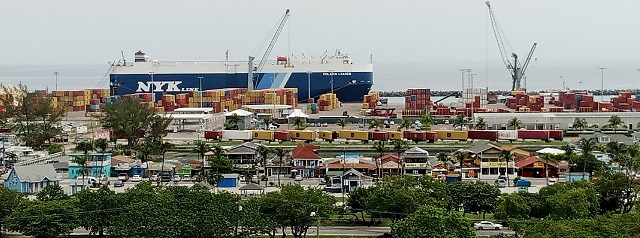
Afreximbank and ITC will develop detailed profiles of sectors in both regions to map out promising value chains and identify growth barriers and requirements
ANALYSIS | THE INDEPENDENT | Trade between Africa and the Caribbean could soar to $1.8 billion annually by 2028, provided that value addition, trade facilitation, and enhanced logistics are prioritized, according to new research from the International Trade Centre (ITC) and the African Export-Import Bank Currently, bilateral trade in goods between the two regions stands at $729 million.
These preliminary findings, unveiled in Nassau, Bahamas, during the launch of the ITC-Afreximbank ‘Strengthening AfriCaribbean Trade and Investment’ project, coincided with the 31st Afreximbank Annual Meetings and the third AfriCaribbean Trade and Investment Forum (ACTIF). The research indicates that the travel and transport sectors offer the greatest potential for growth, accounting for two-thirds of the potential ‘services trade’ between Africa and the Caribbean.
The findings also highlight that, within the goods segment, the most critical sectors are minerals and metals; wood, paper, rubber, and plastics; and processed food and animal feed.
The project’s objective is to enhance trade and investment between Africa and the Caribbean, fostering greater cooperation between the private sectors of both regions.
Following the launch, Afreximbank and ITC will develop detailed profiles of sectors in both regions to map out these promising value chains and identify growth barriers and requirements. The results will be published in a comprehensive report at the Fourth ACTIF in 2025.
Prof. Benedict Oramah, President and Chairman of the Board of Directors of Afreximbank, commented on the findings: “The report confirms the vast Africa-Caribbean trade and investment opportunities that remain untapped. It provides strong validation of Afreximbank’s Caribbean Strategy. With a project pipeline of $2.5 billion and an investment pipeline worth $1.5 billion, the Bank has demonstrated its commitment to realizing opportunities across the two regions. The productive collaboration between Afreximbank and ITC aims to bridge the knowledge gap and build capacity among small and medium-sized enterprises, which are critical for the growth of Africa-Caribbean trade and investment.”
ITC Executive Director Pamela Coke-Hamilton added: “Small businesses can be among the first to drive and benefit from increased trade between these two regions, as they form the backbone of both African and Caribbean economies. There are huge growth opportunities if the right sectors are prioritized for development and investment.”
Turning potential into exports
ITC data reveals that Africa and the Caribbean, despite their shared history and rich cultural ties, export less than 3% to each other. Export levels were low even before the global impact of COVID-19, conflict, and climate change. Over the past decade, the share of bilateral exports has never surpassed 6%.
Current trade between the two regions is highly concentrated in a few key products. For example, more than half of Africa’s exports to the Caribbean are mineral primary products, with crude oil being the leading export ($232 million, 27% of total). Caribbean exports to Africa are dominated by a fertilizer produced in Trinidad and Tobago, anhydrous ammonia, making up nearly half of all exports to Africa ($423 million, 49% of total).
Tackling trade challenges
But to boost trade between Africa and the Caribbean, two key issues must be addressed: high tariffs (especially on processed goods) and weak logistics. Bilateral tariffs are typically higher than those charged to exporters from other trading partners. Tariffs also increase with the level of processing, discouraging the transformation of products into value-added goods for export. Lowering tariffs benefits both regions by providing greater variety to consumers at lower costs and allowing regions to specialize in sectors where they are competitive.
Trade logistics performance in Africa and the Caribbean is significantly lower compared to other regions, according to the World Bank. Streamlining the flow of goods and information can increase market access and foster trade.
Trade agreements are a solution to lower trade costs between the two regions. As part of the new project, ITC will analyze how different tariff liberalization and non-tariff measure harmonization scenarios may increase trade at the country and product levels.
Strengthening Partnerships
The project will contribute to the implementation of the memorandum of understanding between ITC and Afreximbank and build upon cooperation on the “How to Export with the AfCFTA” Training Programme, South Sudan National Export and Investment Strategy, Pan-African Fashion Alliance, and the Pan-African Private Sector Trade and Investment Committee Survey.
 The Independent Uganda: You get the Truth we Pay the Price
The Independent Uganda: You get the Truth we Pay the Price





